
On a visit to the Kgalagadi National Park in May 2022 we were surprised by the size of the flocks at some of the waterholes. Red-billed Queleas, Red-headed Finches and Cape Turtle Doves were abundant, and the sound of thousands of birds flying in and out of the waterhole was particularly noticeable at Urikaruus. It was a visual and aural feast.
Like Common Starlings, the birds flew in synchronised waves. As Lanner Falcons attacked low and fast, thousands of drinking birds would leave in vast flights and then descend on nearby trees where they would cluster in huge numbers. These were mixed-species flocks, which made the spectacle even more interesting. The flocking patterns and noise are known to disorientate and confuse predators, such as Lanner Falcons, giving individual birds a higher chance of survival. However, weaker or younger birds were sometimes stunned or injured in the mêlée. Injured birds would later be eaten by jackals, Secretarybirds or goshawks.
We wondered how each bird got an opportunity to drink. We watched large flocks fly in and saw birds at the bottom drop down for a quick drink before the entire flock rapidly flew off. Do the birds rotate, with those that have had a chance to drink staying at the top and those that have not rotating to the bottom of the flock as they fly into the waterhole? As the birds left the safety of the trees, it looked as if the entire flock left each time, including those that had already drunk.
PETER RYAN responds: It’s unlikely that the birds are taking turns in the sense of any kind of altruistic behaviour. Work done on how birds manage to fly in very large, tight flocks suggests there is no grand design – just birds reacting to the movements of their immediate neighbours.
この記事は African Birdlife の May/June 2023 版に掲載されています。
7 日間の Magzter GOLD 無料トライアルを開始して、何千もの厳選されたプレミアム ストーリー、9,000 以上の雑誌や新聞にアクセスしてください。
すでに購読者です ? サインイン
この記事は African Birdlife の May/June 2023 版に掲載されています。
7 日間の Magzter GOLD 無料トライアルを開始して、何千もの厳選されたプレミアム ストーリー、9,000 以上の雑誌や新聞にアクセスしてください。
すでに購読者です? サインイン

EXPLORING NEW HORIZONS
Keith Barnes, co-author of the new Field Guide to Birds of Greater Southern Africa, chats about the long-neglected birding regions just north of the Kunene and Zambezi, getting back to watching birds and the vulture that changed his life.

footloose IN FYNBOS
The Walker Bay Diversity Trail is a leisurely hike with a multitude of flowers, feathers and flavours along the way.
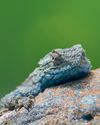
Living forwards
How photographing birds helps me face adversity
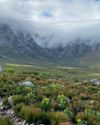
CAPE crusade
The Cape Bird Club/City of Cape Town Birding Big Year Challenge
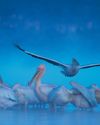
water & WINGS
WATER IS LIFE. As wildlife photographer Greg du Toit knows better than most.
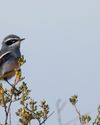
winter wanderer
as summer becomes a memory in the south, the skies are a little quieter as the migrants have returned to the warming north. But one bird endemic to the southern African region takes its own little winter journey.
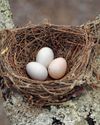
when perfect isn't enough
Egg signatures and forgeries in the cuckoo-drongo arms race

Southern SIGHTINGS
The late summer period naturally started quietening down after the midsummer excitement, but there were still some classy rarities on offer for birders all over the subregion. As always, none of the records included here have been adjudicated by any of the subregion's Rarities Committees.

flood impact on wetland birds
One of the features of a warming planet is increasingly erratic rainfall; years of drought followed by devastating floods. Fortunately, many waterbirds are pre-adapted to cope with such extremes, especially in southern Africa where they have evolved to exploit episodic rainfall events in semi-arid and arid regions. But how do waterbirds respond to floods in areas where rainfall - and access to water - is more predictable? Peter Ryan explores the consequences of recent floods on the birds of the Western Cape's Olifants River valley.
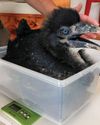
a star is born
It’s every producer’s dream to plan a wildlife television series and pick the right characters before filming.